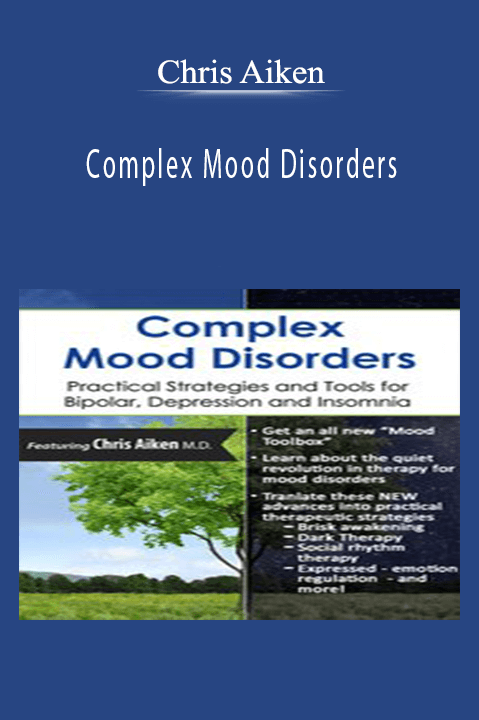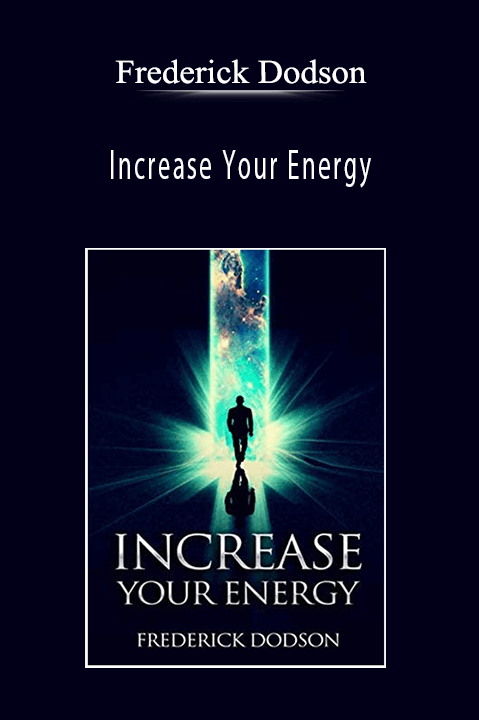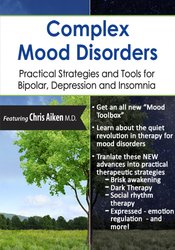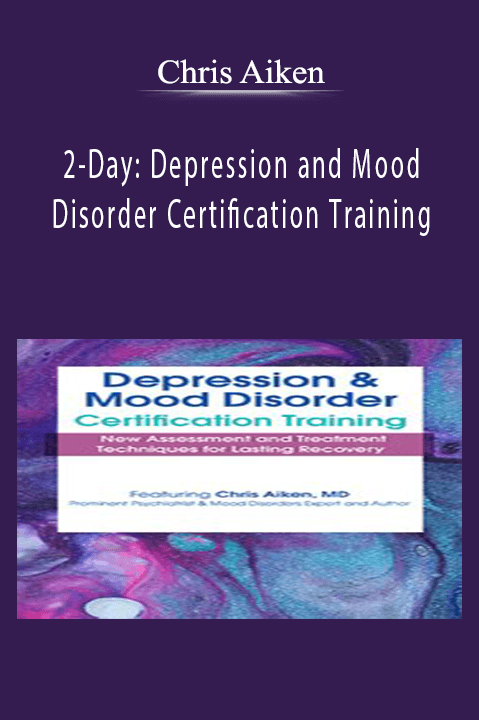Complex Mood Disorders: Practical Strategies and Tools for Bipolar, Depression and Insomnia – Chris Aiken
- Get an all new “Mood Toolbox”
- Learn about the quiet revolution in therapy for mood disorders
- Translate these NEW advances into practical therapeutic strategies….
- Brisk awakening
- Dark therapy
- Social rhythm therapy
- Expressed-emotion regulation –and more!
Therapy is taking front-and-center stage in the treatment of bipolar and depression, and this seminar will bring you up-to-date on the advances your clients need most. We’ll draw from over half a dozen evidenced-based therapies, including:
- Interpersonal Social Rhythm Therapy (IPSRT)
- Cognitive Behavioral Therapy for Bipolar (CBT-B) and Insomnia (CBT-I)
- Family-Focused Therapy for Bipolar
- Group Psychoeducation
- Functional Remediation
- Behavioral Activation
We’ll pull together the common elements in these therapies to create a single, flexible toolkit that you can adapt to the unique needs of each client.
You’ll learn how modern-life is contributing to mood disorders by changing the environment we live in. Blue-light from electronic devices can alter neurohormones in ways that cause depression, insomnia, and obesity. We’ll explore the effects of diet, seasons, light, temperature, and air-quality on sleep and mood. We’ll also look at ways that technology can aid recovery, including dawn-simulators, blue-light filters, sleep actigraphy, and specific apps for mood disorders.
We’ll explore the unique ways that bipolar and depression impact relationships and how to address those in therapy. Finally, you’ll learn how to work with families to reduce conflict and foster a more supportive environment for recovery during mood episodes.
- Distinguish the key phases of mood: depression, hypomania, mixed states and euthymia.
- Summarize the role of the biological clock in mood disorders.
- Identify key activities that regulate or disrupt the biological clock.
- Develop a morning routine to treat depression, and an evening routine to treat mania and insomnia.
- Describe how to use the senses to reduce agitation and mania.
- Select devices that can treat depression and bipolar, including dawn simulators and blue-light filters.
- Develop exercises your client can practice to improve memory and cognition.
- Describe how hypomania and depression impact relationships.
- Identify six communication skills that families can use to improve mood disorders.
The Mood Spectrum
- The three faces of mood: depression, hypomania, and mixed states
- Psychological and social effects of the three moods
- Working with each mood in the therapeutic relationship
- All too common: the role of other disorders (eating, personality, anxiety, trauma and addictions) in mood disorders
- Finding normal
- Flowers in the weeds: six strengths that come with mood disorders
Circadian Rhythms
- Mood disorders and the biological clock
- Four key events that set the clock
- Social interactions: from deprivation to overstimulation
- Brisk awakening
- Light therapy
- Dark therapy
- Flow, engagement, and behavioral activation
- Seasonal moods
Sleep and Mood
- Sleep drive and circadian rhythms
- Normal vs. abnormal insomnia: the role of anxiety
- Sleep hygiene: a modern take on the basics
- Advanced moves: sleep restriction and CBT-insomnia
- Modifications for bipolar and depression
Mood and Health
- When the body impedes the mind: inflammation, head injury and obesity
- Exercise: how much, how often?
- Technology and mood
- Food matters: tea, dark chocolate, and the Mediterranean diet
- Air quality: from negative ions to aromatherapy
Medication
- Update on psychopharmacology of mood disorders
- Update on natural treatments of mood disorders
- Minimize side effects and maximize adherence
Cognition: The Silent Symptom
- Recognize cognitive deficits
- How cognition impacts therapy
- Functional remediation: a new paradigm
- Three ways to enhance cognition: restoration, compensation and optimization
- Take it home: Seven exercises to restore the mind
Mood Disorders in the Family
- Four ways to help: warmth, empathy, positive comments, and optimism
- Five things to avoid: critical comments, scrutiny, conflict, over-involvement and hostility
- Three overlooked ingredients: timing, frequency and regularity
- Adult children in the home: boundaries and limits
- Managing crises
- Protecting young children
Instant Access Available
Product Content

Get Instant Access Complex Mood Disorders: Practical Strategies and Tools for Bipolar, Depression and Insomnia – Chris Aiken at Offimc.click Now!
Delivery Information
- Upon ordering the product, a delivery email with download instructions will be sent immediately to you so that you may download your files. If you log in (or create an account) prior to purchase you will also be able to access your downloads from your account dashboard.
- It is a digital download, so please download the order items and save them to your hard drive. In case the link is broken for any reason, please contact us and we will resend the new download link to you.
- If you don't receive the download link, please don’t worry about that. We will update and notify you as soon as possible from 8:00 AM – 8:00 PM (UTC+8).
- Please Contact Us if there are any further questions or concerns you may have. We are always happy to assist!









8 reviews for Chris Aiken – Complex Mood Disorders: Practical Strategies and Tools for Bipolar, Depression and Insomnia
There are no reviews yet.